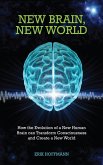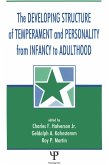In "The Meaning of Infancy," John Fiske explores the intricate tapestry of human development during the early stages of life, synthesizing perspectives from psychology, philosophy, and cultural studies. Through a blend of empirical observation and theoretical engagement, Fiske employs a lyrical yet analytical prose style, delving into the emotional and cognitive dimensions of infancy. He situates his work in the broader context of late 19th-century thought, reflecting the burgeoning interest in child psychology and the implications of developmental theory within a rapidly modernizing society. Fiske, a prominent American philosopher and historian, was influenced by the shifting paradigms of science and education during his time. His interest in the evolutionary perspectives inspired by Darwin and the psychological insights of his contemporaries shaped his vision of childhood as a crucial period of growth. His background in philosophy and history imbues his work with a rich interdisciplinary approach, utilizing both scientific rigor and reflective inquiry to unravel the complexities of infancy. This book is an essential read for educators, psychologists, and parents alike, offering profound insights into the significance of infancy in shaping identity and learning. Fiske's thoughtful examination encourages readers to appreciate the delicate interplay of nature and nurture, fostering a deeper understanding of the foundational experiences that influence human development.
Dieser Download kann aus rechtlichen Gründen nur mit Rechnungsadresse in A, B, BG, CY, CZ, D, DK, EW, E, FIN, F, GR, H, IRL, I, LT, L, LR, M, NL, PL, P, R, S, SLO, SK ausgeliefert werden.









